What opportunities do stay at home orders create?
“Obstacles and frustration are part of life. Living is the art of overcoming them.”
DeRose
How we respond to current affairs depends in large part on our backgrounds, training, and prior experiences. Covid19 may be the first major health crisis (or economic crisis) that many have experienced. It is undoubtedly different from prior ones I have experienced, but having been through a few of these over the years, I can experience this one knowing that the sun will rise tomorrow and that today I am fine. We don’t have a crystal ball with which to predict the future, but spending a lot of time worrying about what will happen tomorrow, simply put, is putting a lot of energy into things we don’t want to happen.
How does the quote from DeRose apply here? To me, this is very applicable. I love that he refers to living as an art. For me, art is self-expression through creative efforts. Considering our lives to be a result of creative energy resonates with me. I do not think of myself as a victim of fate. I am not a pawn in a chess game of the gods. The saying: “if life gives you lemons, make lemonade,” is a motto I have lived by most of my life.
With our mindfulness practice, staying present, staying focused, and by not letting our mind wander into a thousand “what ifs,” we can live each day without an excess of anxiety or stress.
The extra time we may have on our hands because we are practicing social distancing and obeying stay at home orders creates opportunities. We can use this time to consider many things about our lives that we usually would not have the time or motivation to undertake. For example, asking powerful questions such as: “Am I where I want to be in my life at this time?” “Am I doing the work I want to be doing?” “Am I happy with who I am as a person?” “Do I have behaviors that I want to change?” These questions are the kind of self-inquiry that leads to self-knowledge, i.e., really knowing yourself. Mindfulness and meditation are one path to self-knowledge. If you are mindful, if you are in a state of flow, you can ask these questions without fear or anxiety.
If you struggle with such questions, perhaps it is because you are not asking these questions in the right frame of mind or state of consciousness. Probably your mind is agitated, or you are mind wandering. We all have an internal dialogue, which is our conscience that can be operating from a positive or a negative point of view, like an angel and a devil. The devil voice may ask you: “what are you doing? You need to eat something. You are in quarantine, go eat something.” Then after you eat, the same voice says, “what did you do? You ate a lot. You will get fat.” So the same voice that tells you to eat then criticizes you for eating. This is an excellent example of how the mind wanders. These aren’t the thoughts we should allow to control our behavior. There is also the angel voice that gives us good advice and is helpful. For example, the voice may ask, “are you eating something healthy?” “Are you exercising.” “Are you cultivating good habits?” The positive voice comes to you when you are mindful or in a state of flow. The negative view comes when your mind is agitated or wandering.
The conclusion is this: never ask yourself questions when your mind is agitated or wandering. To ask the right questions, quiet your mind, calm your emotions, and take a deep breath. Then you will formulate the right questions.
Start your meditation practices clicking the link below:
https://www.derosemeditation.com/online
Learn about our mindfulness design programs with the link to our "try it" form below:
https://www.derosemeditation.com/classes
Tim Whiteside
